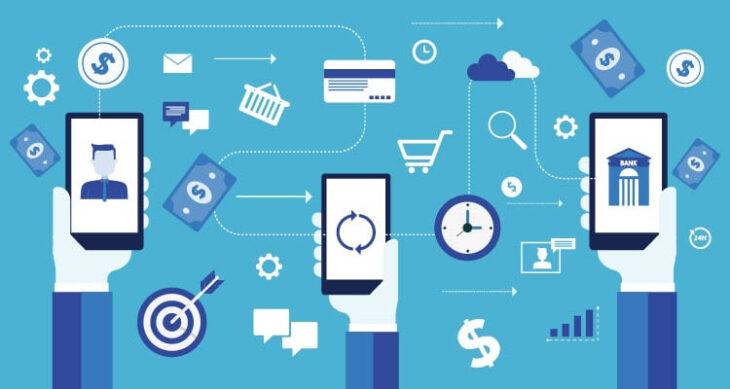A payment gateway is a sophisticated technology system that facilitates online transactions by connecting your business website or e-commerce application to multiple payment methods.
This seamless integration allows businesses to accept payments from customers worldwide, enhancing both convenience and operational efficiency.
Key Functions of a Payment Gateway
- Transaction Facilitation: Enables the transfer of funds between buyers and sellers securely.
- Integration with Multiple Payment Methods: Supports various payment instruments, including credit cards, debit cards, and digital wallets.
- Security Assurance: Implements advanced security measures to protect sensitive financial data.
- Real-Time Processing: Allows transactions to be processed instantly, providing immediate confirmation to both parties.
How Payment Gateways Operate
The mechanics behind payment gateways are intricate, involving multiple steps to ensure secure and efficient transactions. Here’s a detailed breakdown:
A. Initiation of Transaction
The process begins when a consumer decides to purchase a product or service from an online store. Upon selecting the desired items, the consumer is presented with various payment options. The installed payment gateway appears as one of these choices, allowing the customer to proceed with their preferred method.
B. Transmission of Payment Information
Once the consumer selects a payment method, the gateway securely transmits the transaction details to the payment processor. For instance, if a bank transfer is chosen, the gateway communicates with the consumer’s bank to initiate the payment.
C. Authorization and Validation
The payment processor forwards the transaction information to the card issuer (e.g., Visa, Mastercard) or the relevant financial institution. This step involves verifying the authenticity of the transaction and ensuring that sufficient funds are available.
D. Response from the Issuer
After validation, the card issuer sends back a response in the form of an authorization code. This code is unique and known only to the issuer and the payment gateway, ensuring the security of the transaction.
E. Completion of Transaction
Upon receiving the authorization code, the payment gateway updates the transaction status to “paid.” The information is then relayed to the merchant, who can proceed to fulfill the order. This entire process typically occurs within seconds, providing a swift and efficient payment experience.
Features of Payment Gateways
Payment gateways offer a plethora of features that enhance the functionality and security of online transactions. Below are the primary advantages:
A. Consolidated Accounts
With a payment gateway, businesses need not maintain multiple accounts for different payment methods. The gateway integrates seamlessly with legal financial institutions and banks, simplifying financial management.
B. Diverse Payment Options
Online transactions are streamlined with a wide array of payment methods. Consumers enjoy the flexibility to choose from credit cards, debit cards, digital wallets, and other emerging payment solutions, enhancing their purchasing experience.
C. Simplified Financial Tracking
Top-tier payment gateways provide real-time transaction summaries, enabling businesses to monitor and manage their finances more effectively. This automation reduces manual errors and saves time.
D. Expanded Market Reach
Manual payment systems often limit business operations to specific regions. Payment gateways, however, facilitate global transactions, allowing businesses to tap into international markets and increase their product reach.
E. Accelerated Transaction Processing
Both consumers and businesses benefit from the rapid processing of payments. The swift completion of transactions enhances customer satisfaction and operational efficiency.
F. Enhanced Security Measures
Payment gateways employ robust security protocols, including encryption and fraud detection, to safeguard transaction data. This ensures that businesses and consumers can transact with confidence, minimizing the risk of data breaches.
G. Unlimited Transaction Capacities
Unlike traditional payment methods that may impose transaction limits, payment gateways offer unrestricted transaction capabilities. This flexibility accommodates businesses of all sizes, from startups to large enterprises.
Top Payment Gateways for 2024
As the digital payments landscape evolves, several payment gateways stand out for their reliability, security, and innovative features. Here are the top contenders to watch in 2024:
1. PayPal
A global leader in online payments, PayPal continues to dominate the market with its user-friendly interface and extensive integration options. Its widespread acceptance makes it a preferred choice for businesses and consumers alike.
2. Stripe
Renowned for its developer-friendly API, Stripe offers robust customization options. Its comprehensive suite of tools supports businesses in managing subscriptions, invoicing, and more, making it ideal for diverse online ventures.
3. Square
Square excels in providing integrated payment solutions tailored for both online and offline businesses. Its seamless hardware and software integration streamline operations for retailers and service providers.
4. Adyen
Adyen stands out for its global reach and support for a multitude of payment methods. Its unified platform simplifies cross-border transactions, making it a valuable asset for international businesses.
5. Klarna
Specializing in buy-now-pay-later solutions, Klarna enhances consumer purchasing power. Its flexible payment options drive higher conversion rates and customer satisfaction.
6. Worldpay
Worldpay offers comprehensive payment processing services with a focus on security and compliance. Its extensive network supports businesses in handling high transaction volumes efficiently.
7. Razorpay
Focusing on the Indian market, Razorpay provides a wide range of payment solutions tailored to local businesses. Its robust infrastructure supports seamless transactions across various platforms.
8. Alipay
Dominating the Chinese market, Alipay offers extensive mobile payment solutions. Its integration with popular platforms and services ensures widespread adoption among consumers.
9. WeChat Pay
Integrated within the WeChat ecosystem, WeChat Pay facilitates easy payments for millions of users. Its versatility extends to various services, enhancing its utility for both consumers and businesses.
10. Paystack
Catering to African markets, Paystack offers reliable and secure payment processing services. Its focus on emerging markets supports businesses in expanding their reach across the continent.
Benefits of Using Payment Gateways for Online Businesses

Implementing a payment gateway offers numerous advantages that contribute to the growth and efficiency of online businesses. Here’s an in-depth look at these benefits:
A. Streamlined Financial Operations
Payment gateways centralize all transaction data, simplifying financial tracking and reporting. This consolidation aids in better financial management and strategic planning.
B. Enhanced Customer Experience
Offering multiple payment options caters to diverse consumer preferences, enhancing the overall shopping experience. A smooth and secure payment process encourages repeat business and customer loyalty.
C. Increased Sales and Revenue
The convenience of online payments can lead to higher conversion rates. By reducing friction in the purchasing process, businesses can capture more sales and boost revenue.
D. Global Expansion Opportunities
With the ability to accept international payments, businesses can expand their market reach beyond domestic borders. This global presence opens up new revenue streams and growth opportunities.
E. Reduced Risk of Fraud
Advanced security features in payment gateways, such as encryption and fraud detection, minimize the risk of fraudulent transactions. This protection safeguards both the business and its customers.
F. Automated Payment Processes
Automation of payment processing reduces the need for manual intervention, saving time and reducing the likelihood of errors. This efficiency allows businesses to focus on core operations and growth.
G. Improved Cash Flow Management
Real-time processing and immediate fund transfers enhance cash flow management. Businesses can manage their finances more effectively, ensuring timely payments and operational stability.
Implementing a Payment Gateway: Best Practices
To maximize the benefits of a payment gateway, businesses should consider the following best practices:
A. Choose the Right Gateway
Select a payment gateway that aligns with your business needs, considering factors such as transaction fees, supported payment methods, and integration capabilities.
B. Ensure Security Compliance
Adhere to security standards like PCI DSS to protect sensitive customer data. Regularly update security protocols to stay ahead of potential threats.
C. Optimize for Mobile Payments
With the rise of mobile commerce, ensure that your payment gateway is optimized for mobile devices. A responsive and user-friendly mobile payment experience can significantly enhance customer satisfaction.
D. Provide Transparent Pricing
Clearly communicate transaction fees and any additional costs to avoid confusion and build trust with your customers.
E. Test Thoroughly Before Launch
Conduct comprehensive testing to ensure that the payment gateway functions smoothly across all platforms and devices. This preemptive step helps identify and resolve potential issues before they impact customers.
F. Offer Excellent Customer Support
Provide robust customer support to assist with any payment-related issues. Prompt and effective support can enhance customer trust and satisfaction.
Future Trends in Payment Gateways
The landscape of payment gateways is continuously evolving, influenced by technological advancements and changing consumer behaviors. Here are some key trends to watch:
A. Increased Adoption of Cryptocurrency
As digital currencies gain mainstream acceptance, payment gateways are integrating cryptocurrency options, providing businesses with innovative payment solutions.
B. Enhanced AI and Machine Learning Integration
Artificial intelligence and machine learning are being leveraged to improve fraud detection, personalize customer experiences, and optimize transaction processing.
C. Growth of Contactless Payments
The convenience and speed of contactless payments are driving their adoption. Payment gateways are adapting to support these methods, catering to the demand for swift and hygienic transactions.
D. Expansion of Embedded Finance
Embedded finance solutions, which integrate financial services directly into non-financial platforms, are becoming more prevalent. Payment gateways are evolving to support these integrated services, enhancing their functionality.
E. Focus on Sustainability
Sustainable payment solutions are gaining traction, with businesses seeking eco-friendly options. Payment gateways are responding by adopting green practices and supporting sustainable financial products.
Conclusion
Payment gateways are indispensable tools for online businesses, offering seamless, secure, and efficient transaction processing. By understanding their functionality, leveraging top gateways, and implementing best practices, businesses can enhance their operations, expand their market reach, and achieve sustained growth.














